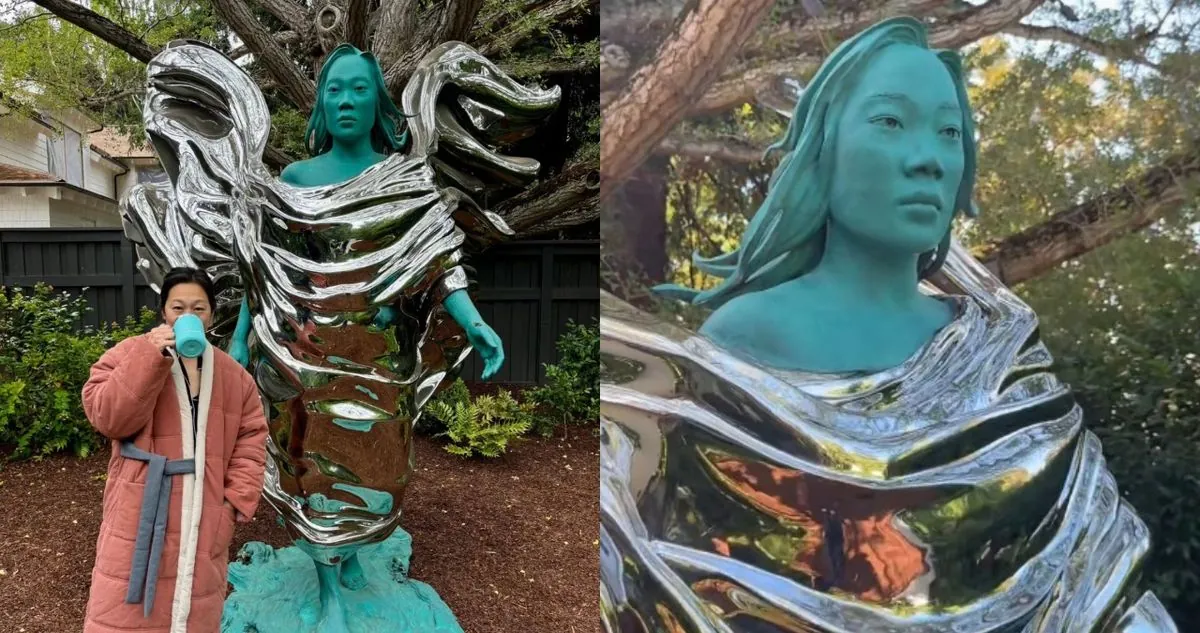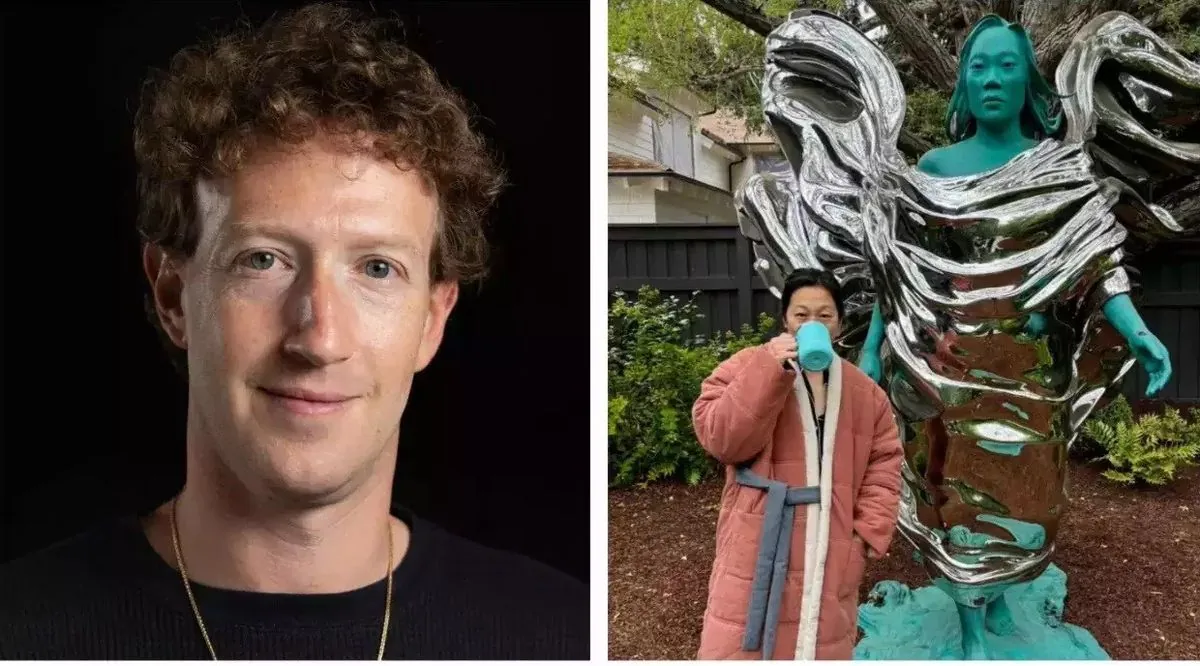Zuckerberg's Sculpture Unveiling: A Reflection on AI and Art's Future
Mark Zuckerberg's recent unveiling of a sculpture of his wife sparks discussion on the nature of bad art, AI-generated creations, and the future of human creativity in an increasingly digital world.

In the realm of art, there exists a peculiar niche that captivates attention: poorly executed sculptures of well-known individuals. This genre, distinct from the intentional kitsch of artists like Jeff Koons or the deliberate crudeness of Cy Twombly, offers a unique challenge to our aesthetic sensibilities.
Recent years have witnessed notable examples of this phenomenon. In 2017, a sculpture of Cristiano Ronaldo was unveiled at Madeira airport, while 2019 saw the introduction of a wooden statue of Melania Trump in her Slovenian hometown. These creations defy conventional artistic explanations, leaving viewers perplexed.
Entering this arena, Mark Zuckerberg recently shared a sculpture of his wife, Priscilla Chan, on Instagram. Created by New York-based artist Daniel Arsham, the piece features Chan rendered in turquoise, reminiscent of the Na'vi from James Cameron's "Avatar" series. The sculpture's billowing chrome cloth evokes comparisons to the Winged Victory of Samothrace, a 2nd-century BC marble masterpiece.
Zuckerberg's caption, "Bringing back the Roman tradition of making sculptures of your wife," coupled with the color-coordinated mug Chan holds in the accompanying photo, suggests a self-aware approach to the unveiling. This presentation aligns with Zuckerberg's broader social media strategy, which aims to soften his image while promoting Meta's products.

The sculpture's unveiling has sparked discussions about the nature of art in the age of artificial intelligence. Its seemingly arbitrary design raises questions about the role of AI in artistic creation and the future of human-made art.
"Bringing back the Roman tradition of making sculptures of your wife"
As AI-generated art becomes more prevalent, it challenges our understanding of creativity and meaning in artistic expression. Unlike human artists like Marcel Duchamp, who grappled with the tension between life's potential meaning and apparent randomness, AI lacks the capacity for such existential contemplation.
This development prompts reflection on the purpose of art in human society. Traditionally, art has served as a means to confront mortality and bring order to chaos. The rise of AI-generated content, however, introduces a new paradigm of limitless possibilities without inherent meaning.
As we navigate this evolving landscape, the question arises: Will the proliferation of AI-generated art lead to a renewed appreciation for handcrafted, human-created works? Or will we become desensitized to the flood of algorithmically produced content?
The future of art in the digital age remains uncertain. As AI continues to advance, it challenges us to reconsider the value we place on human creativity and the role of art in our lives. The sculpture of Priscilla Chan, while "interestingly bad," serves as a catalyst for these important discussions about the intersection of technology, art, and human expression.


































